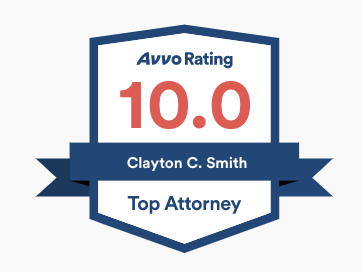Assaults / Assault Family Violence
Assault cases range from simple Class C assault all the way up to a 1st degree felony depending on the circumstances of the case.
Assault Family Violence (also known as Domestic Violence) cases are often the most contested and litigated cases. There are many ways to defend these cases. Often these cases are he said, she said cases.
Clayton was in a Family Violence court while at the Dallas County District Attorney's Office. He knows how these cases work. He knows the system.
In almost all domestic violence circumstances, a call to the police results in an arrest. While domestic violence allegations are serious, so are false allegations. A false allegation can impact a person's life in many ways such as reputation, jobs, ability to see his or her own children, ability to own a firearm, and many more harmful ways.
One way to start defending a case is to get an Affidavit of Non-Prosecution from the complaining witness or victim. The State will not automatically drop a case when a complaining witness fills out an affidavit. The State picks up the charge, it is the State of Texas v. example - John Doe. In most circumstances prosecutors will take the Affidavits of Non-Prosecution into consideration on what they will do with a case.
If a felony, we can do an examining trial before an indictment to make the State prove the police had probable cause for arrest. Examining trials also lock officer's testimony down and can be used later on down the road in a motion to suppress evidence or a jury trial.
Another way to defend a felony assault case is to submit a packet to the Grand Jury. Clayton has had success getting cases reduced to misdemeanors and no-billed by the Grand Jury. For the State of Texas to go forward on a felony case, the Grand Jury must true-bill the case. A no-bill is essentially a dismissal, meaning the State cannot move forward on the case. Time is of the essence and this must be done very early in the proceedings. As a prosecutor, Clayton presented many cases to the Dallas County Grand Jury. As a criminal lawyer, he knows how to effectively write and present a packet to a Grand Jury.
Clayton Smith is an experienced trial attorney and will fight for you in court. Clayton will take your case to a jury trial, if you choose, or if the case needs to go to a jury trial. Also, depending on the judge and court, a person may want to have a bench trial or trial before the court.
Examples of some Types of Assault
Assault by Contact: Class C Misdemeanor
Assault Causes Bodily Injury: Class A Misdemeanor
Assault Causes Bodily Injury (sports related): Class B Misdemeanor
Assault Causes Bodily Injury Family Violence: Class A Misdemeanor
Assault Family Violence Impeding Circulation or Breathing: 3rd Degree Felony
Assault Family Violence (enhanced with prior): 3rd Degree Felony
Assault Public Servant: 3rd Degree Felony
Aggravated Assault Deadly Weapon: 2nd Degree Felony
Aggravated Assault Serious Bodily Injury: 1st Degree Felony
Sexual Assault: varying degrees of felony, depending on the circumstances




